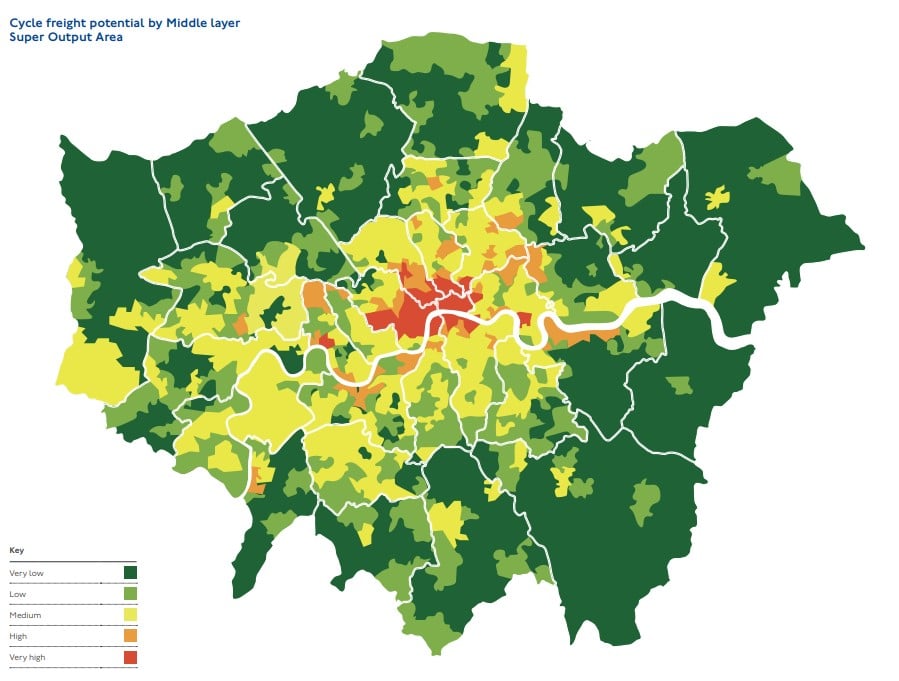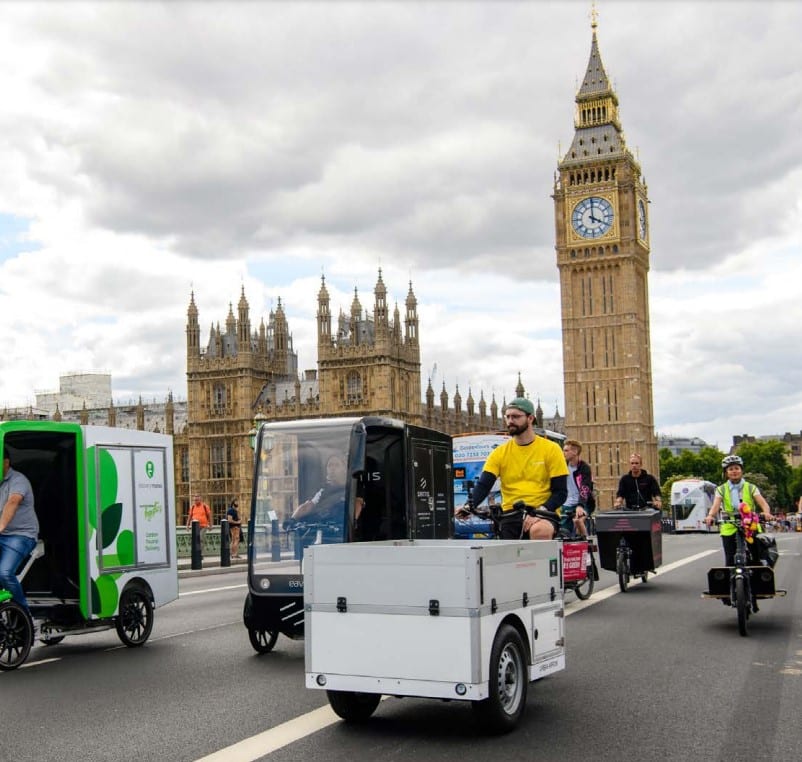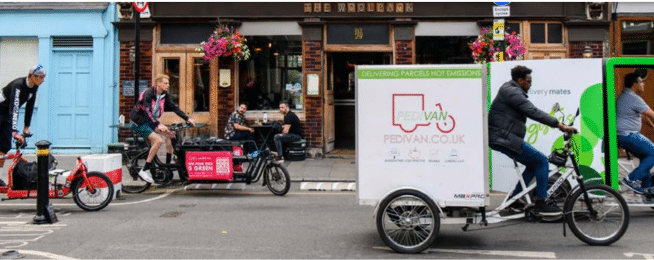The Mayor of London is working towards net zero carbon emissions by 2030, and the city is exploring how e-cargo bikes can help carry the load.
Transport for London (TfL) recently published its first Cargo Bike Action Plan, which lays out the potential for e-cargo bikes to reduce emissions by replacing vans for last-mile deliveries.
The plan identifies some of the barriers inhibiting uptake of e-cargo bikes across the city, and commits TfL to a series of actions to unlock their massive potential.
Prior to the pandemic, 20% of retail sales were made online in London. This climbed as high as 37.5% in the midst of it, and now sits at 26%.
More products being delivered around the city means more vehicles in action, and as far as TfL is concerned, small diesel vans aren't the answer.
To gauge how many of their kilometres can be covered by electric cargo bikes instead, TfL developed a new model that scored different geographic zones around London on things such as bike infrastructure, traffic congestion, employment/retail density and the presence of bike-friendly policies.
This enabled areas with high growth potential to be identified, and illustrated where efforts to promote electric cargo bike use could be concentrated for the greatest impact.

According to the model, e-cargo bikes could replace 1-2% of van kilometres across the Greater London area by 2025 and as much as 4% by 2025.
Central London, where electric cargo bikes could replace up to 9% of van kilometres by 2025 and 17% by 2030, could see the highest growth. TfL says this could save around 100 million van kilometres and up to 30,000 tonnes of CO2 each year by 2030.
But there are some barriers to overcome, and the Cargo Bike Action plan puts them in the spotlight, along with some potential solutions.
Among them is a general unfamiliarity with cargo bikes as opposed to vans, and a need to convince business owners that they can be a great solution for last-mile deliveries.
There are also concerns about the initial outlay of the vehicles, rider safety and the lack of infrastructure such as parking, storage and wider lanes to accommodate the larger bikes.

TfL says it will work with the industry and boroughs to identify locations for micro-mobility hubs, which may take the shape of container units for handling goods and storing and charging e-cargo bikes. These could be installed on private or public land, in parking garages or even retail stores.
There are also plans to improve data collection around e-cargo bikes, to distinguish their use from ordinary bikes as a way of projecting growth, preventing collisions and improving rider safety.
Training and behavior change programs for employees and factoring the larger and more cumbersome nature of electric cargo bikes into the design of lanes are other solutions that TfL says can help on the safety front.
TfL also points to a few schemes that can help with the initial expense of purchasing electric cargo bikes, such as the eCargo Bike Grant Fund or the £110 million scrappage scheme, which offers incentives for businesses to switch to cleaner forms of transport as the city's Ultra Low Emissions Zone (ULEZ) continues to expand.
The full Cargo Bike Action plan can be accessed here.
Become our friend
Find out more about Bicycle Network and support us in making it easier for people to ride bikes.


